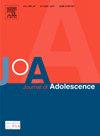Youth's Experience of Mindful Parenting: Associations With Dispositional and Interpersonal Mindfulness, Self-Compassion, and Ways of Coping With Academic and Social Stress
Abstract
Introduction
Mindful parenting is associated with youth's better psychological adjustment, suggesting it could also relate to the ways youth cope with stress. This study investigated how youth's experience of their parents' mindful parenting (or their perceived mindful parenting) related to their ways of coping with academic and social stressors directly, while also estimating indirect associations via three interlinked skills of dispositional mindfulness, interpersonal mindfulness, and self-compassion.
Methods
Australian university students (N = 636; aged 16–21 years) completed a survey to report their perceived mindful parenting, and their own dispositional and interpersonal mindfulness, self-compassion, perceived stress, and intentions to use adaptive and maladaptive ways of coping in response to four hypothetical stressful events (2 × academic and 2 × social).
Results
Perceived mindful parenting was directly associated with more adaptive and less maladaptive coping intentions across both stressor domains. Further, mindful parenting was indirectly positively associated with adaptive coping through self-compassion and interpersonal mindfulness, and indirectly negatively associated with maladaptive coping through dispositional mindfulness. Self-compassion facilitated the negative link between mindful parenting and maladaptive coping with social, but not academic, stressors.
Conclusions
Youth who perceive more mindful parenting are more mindful and self-compassionate, with these skills in turn playing unique roles in more adaptive (and less maladaptive) coping intentions. These findings could be applied to design support programs for students, helping them to understand and practice personal mindfulness and self-compassion in response to a range of stressors, with a special focus also placed on upskilling youth in interpersonal mindfulness.


 求助内容:
求助内容: 应助结果提醒方式:
应助结果提醒方式:


